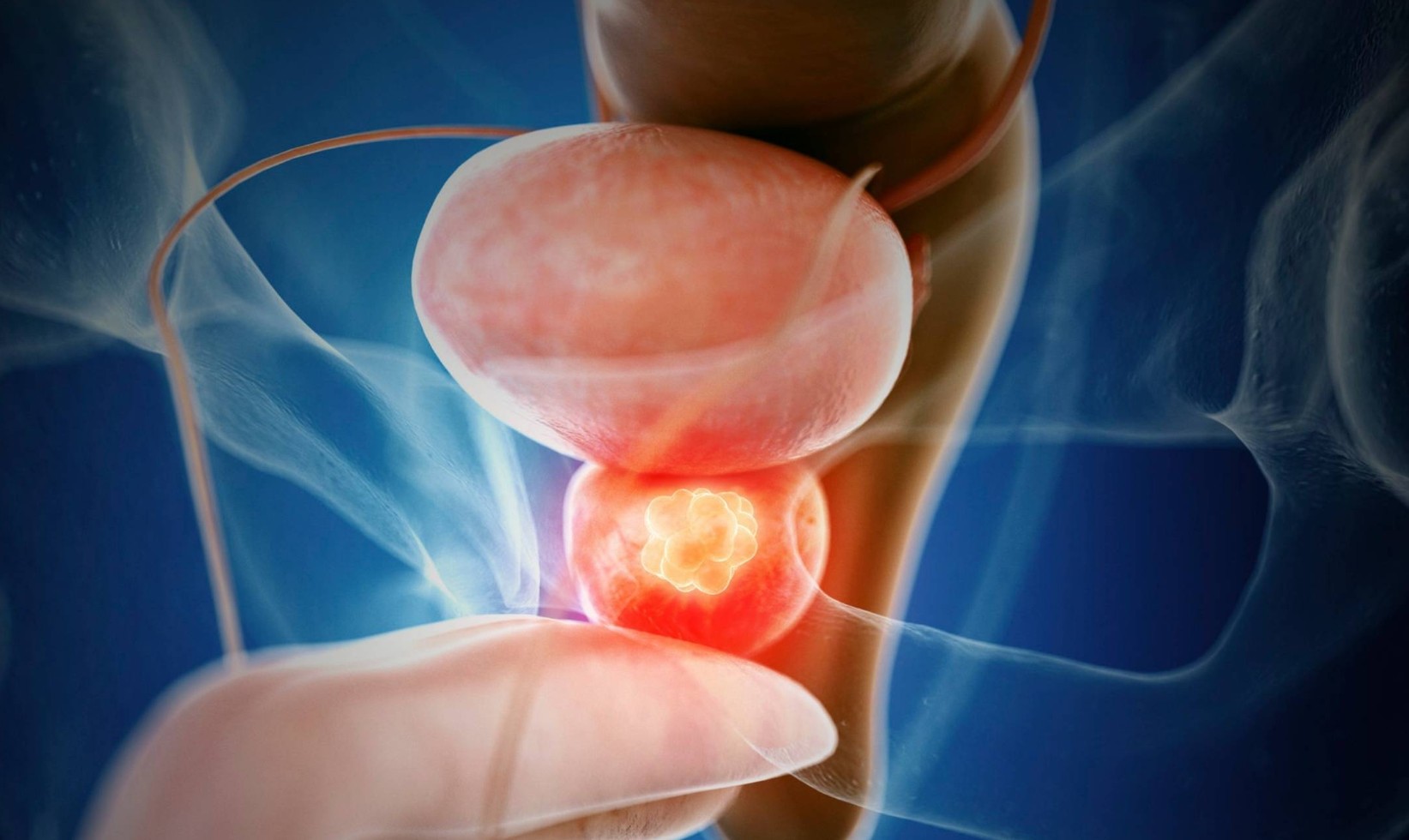Prostate cancer remains one of the most common cancers among men worldwide. While age and lifestyle are major contributing factors, genetics play a critical role in determining risk. Among genetic mutations, the BRCA2 gene mutation has emerged as one of the strongest predictors of aggressive prostate cancer.
Understanding BRCA2 prostate cancer is crucial for early detection, accurate diagnosis, and effective treatment planning. This article will provide a complete overview of what BRCA2 mutations mean for prostate cancer, including symptoms, risk factors, treatment options, prevention strategies, and the latest research developments.
Definition and Overview
BRCA2 prostate cancer refers to prostate cancer that develops in men who carry mutations in the BRCA2 gene. Normally, the BRCA2 gene helps repair damaged DNA and prevents abnormal cell growth. When mutated, this gene fails to control DNA repair, leading to an increased risk of developing several cancers, including prostate cancer.
Men with BRCA2 mutations not only face a higher likelihood of prostate cancer but also tend to develop more aggressive forms of the disease at a younger age. Understanding the role of BRCA2 mutations is vital for both patients and healthcare providers in designing personalized cancer care strategies.
Types
While prostate cancer itself can be classified into different stages and grades, BRCA2 prostate cancer is often associated with:
- Early-onset prostate cancer: Appears before age 55.
- Aggressive prostate cancer: Higher Gleason scores and faster progression.
- Metastatic prostate cancer: More likely to spread to bones and lymph nodes.
These distinctions make BRCA2-related cases more challenging compared to sporadic prostate cancer.
Causes and Risk Factors
The primary cause of BRCA2 prostate cancer is the inherited mutation in the BRCA2 gene. However, not everyone with this mutation will develop cancer. Other contributing risk factors include:
- Family history of prostate, breast, ovarian, or pancreatic cancer
- Age over 50
- African or Caribbean ancestry
- Diet high in processed meats and fats
- Sedentary lifestyle
Genetics may account for up to 10–15% of prostate cancers, with BRCA2 mutations representing one of the strongest genetic links.
Symptoms and Early Warning Signs
Like many prostate cancers, BRCA2 prostate cancer may not cause symptoms in early stages. When symptoms appear, they may include:
- Frequent urination, especially at night
- Weak or interrupted urine flow
- Blood in urine or semen
- Erectile dysfunction
- Pain in lower back, hips, or pelvis
Because BRCA2 carriers are more likely to develop aggressive forms, recognizing these warning signs early is critical.
Diagnosis
Diagnosis of BRCA2 prostate cancer involves multiple steps, including:
- Genetic testing: Identifies BRCA2 mutations in blood or saliva samples.
- Prostate-specific antigen (PSA) test: Measures PSA levels in the blood.
- Digital rectal exam (DRE): Checks for prostate abnormalities.
- MRI or ultrasound imaging: Detects suspicious areas.
- Prostate biopsy: Confirms cancer and determines Gleason score.
For men with BRCA2 mutations, regular screening may begin earlier than in the general population.
Treatment Options
Treatment for BRCA2 prostate cancer is often more intensive due to its aggressive nature. Common approaches include:
- Surgery (radical prostatectomy): Removal of the prostate gland.
- Radiation therapy: Targets cancer cells with high-energy beams.
- Hormone therapy: Reduces testosterone levels to slow cancer growth.
- Chemotherapy: Uses drugs to destroy fast-growing cancer cells.
- PARP inhibitors: Target DNA repair pathways in BRCA2-related cancers.
- Immunotherapy: Stimulates the body’s immune system to fight cancer.
Treatment decisions are personalized, taking into account the stage, patient health, and presence of BRCA2 mutations.
Prevention and Lifestyle Recommendations
While genetic mutations cannot be prevented, certain lifestyle choices can reduce overall prostate cancer risk:
- Maintain a healthy weight
- Follow a balanced diet rich in fruits, vegetables, and omega-3 fatty acids
- Limit processed foods and red meat
- Stay physically active
- Avoid smoking and excessive alcohol consumption
- Undergo regular screening if at high risk
Genetic counseling is also recommended for men with a family history of BRCA2-related cancers.
Prognosis and Survival Rates
BRCA2 prostate cancer often has a less favorable prognosis compared to non-BRCA2 cases due to its aggressive progression. Studies show that BRCA2 mutation carriers may have shorter overall survival rates. However, advancements in targeted therapies, such as PARP inhibitors, are improving outcomes.
Early detection remains the most critical factor in improving survival rates. Men who undergo genetic testing and proactive screening have a better chance of successful treatment.
Latest Research and Innovations
Research into BRCA2 prostate cancer is rapidly evolving. Current innovations include:
- PARP inhibitors (e.g., olaparib, rucaparib) showing promising results in extending survival.
- Liquid biopsies to detect genetic mutations in blood samples.
- Personalized treatment plans based on genetic profiling.
- Combination therapies that integrate immunotherapy and targeted drugs.
Ongoing clinical trials are giving hope for more effective treatment strategies tailored specifically for BRCA2 mutation carriers.
Coping and Support for Patients
Living with BRCA2 prostate cancer can be emotionally and physically challenging. Patients benefit from:
- Support groups for sharing experiences and advice
- Genetic counseling for family planning and risk management
- Mental health care to cope with anxiety and stress
- Nutritional and physical therapy to maintain strength during treatment
- Family support systems for emotional and practical assistance
Holistic care ensures patients not only fight cancer but also maintain a good quality of life.
Conclusion
BRCA2 prostate cancer is a serious and aggressive form of prostate cancer that requires early detection, specialized treatment, and ongoing support. By understanding genetic risk, men can take proactive steps through genetic testing, lifestyle changes, and regular medical screening.
With advancements in research, new therapies are offering hope for improved outcomes. Staying informed, seeking timely care, and embracing a holistic support system are essential steps in managing BRCA2 prostate cancer effectively.
FAQ
1. What is BRCA2 prostate cancer?
It is prostate cancer that develops in men with mutations in the BRCA2 gene, leading to a higher risk of aggressive disease.
2. How common is BRCA2 prostate cancer?
BRCA2 mutations are rare in the general population but significantly increase the risk of prostate cancer in carriers.
3. Can BRCA2 prostate cancer be prevented?
The mutation itself cannot be prevented, but lifestyle changes and early screening can reduce risk and improve outcomes.
4. What is the best treatment for BRCA2 prostate cancer?
Treatment varies but often includes surgery, radiation, hormone therapy, and targeted therapies such as PARP inhibitors.
5. Should family members of BRCA2 carriers be tested?
Yes, genetic counseling and testing are recommended for close relatives to assess their cancer risk.


